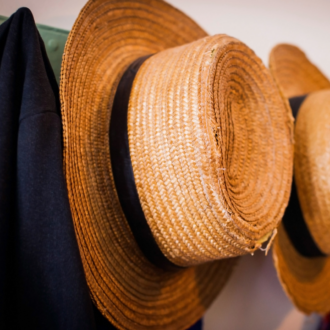Northeast SARE is continuing to explore new markets and audiences through our centering and belonging work. Here at Northeast SARE, we focus on sustainable agriculture and assist in supporting the region's nutritional and textile needs while partnering with our environment and all living organisms comprising our ecosystem. Through our sustainability efforts, we strive to protect nature’s flora and fauna for generations to come.
In achieving this mission, we recently visited Lancaster County and toured three Amish farms: two dairy farms and a flower farm. All of these farms are managed by young Amish farmers who are interested in running their businesses sustainably. On the two dairy farms, each farmer had about 30-40 cows producing A2/A2 organic milk. At the flower farm, the work of growing cut flowers is primarily staffed and run by Amish women.
While Northeast SARE is primarily known as an organization funding farmer-driven innovations in agriculture that improve profitability, stewardship, and quality of life, we also provide research-based, farmer-driven information about practicing sustainable agriculture on farms. It was SARE’s educational materials that brought us to this Amish farming community.
The Amish represent a model farming community. As a community, they do not utilize the types of communication that we “English” are accustomed to. Most of SARE’s resources are accessible through the internet, but it is not the custom of the Plain Folk to utilize such resources. As a result, we made an in-person visit, compiled a list of resources that might be of interest, and sent this list for them to request which materials they wanted. Some of the selected books included, but were not limited to, Farmers’ Guide to Business Structures, Systems Research for Agriculture, Building Soils for Better Crops, and Manage Weeds on Your Farm. These Amish farmers are working to create a library of resources that can assist their community in developing sustainable agriculture practices.
Providing some of SARE’s educational materials to this farming community is part of our ongoing outreach efforts to attract new audiences within the Northeast region and connect these audiences with Northeast SARE. We will continue to build this relationship through our centering and belonging efforts. We hope to learn more from these Amish farmers and intend to support their farming techniques and efforts into the future.
